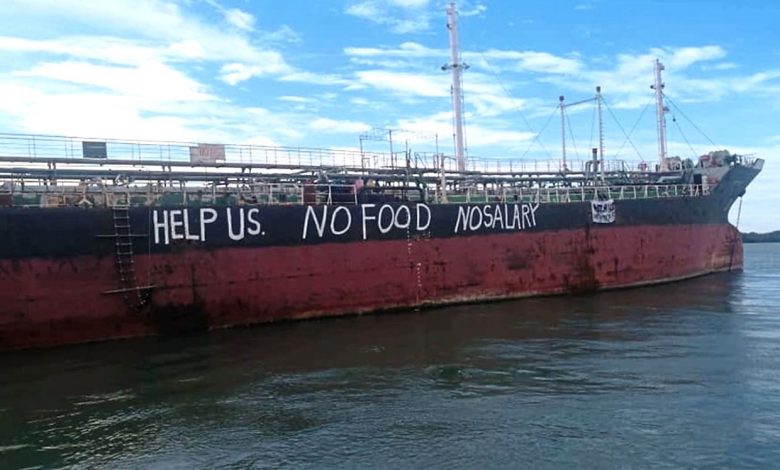IMO discusses how to stem record cases of crew abandonment

The International Maritime Organization’s (IMO) legal committee is meeting this week in London and is discussing one of shipping’s darkest, most intractable problems, crew abandonment, with record numbers of seafarers being left to fend for themselves by owners across the world.
Latest statistics from the database coordinated by the IMO and sister United Nations body, the International Labour Organization (ILO), show that 31 merchant ships – excluding fishing vessels – have been abandoned this year, including six by one Saudi owner, Hadi H Al Hammam Establishment.
Last year was also a record one for crew abandonment cases with the IMO reporting 142 new cases for 2023, up from the previous record of 109 reported the year before.
“The rising tide of seafarer abandonment must be stemmed. Shipping’s good deeds are overshadowed by this abuse. Fake flags, dark fleets, and turmoil create a breeding ground for exploitation. This should serve as a red flag for our entire industry, and we need a system overhaul to protect seafarers and to hold abusers to account,” Steven Jones, the founder of the Seafarers Happiness Index, told Splash today.
Fake flags, dark fleets and turmoil create a breeding ground for exploitation
“The ongoing rise in the number of seafarer abandonments is unacceptable,” said Steve Trowsdale, inspectorate coordinator at the International Transport Workers’ Federation, in comments made earlier this year. “It is a consequence of an industry where the seafarer can be a throw-away commodity. Seafarers and their families pay the ultimate price for the greed and non-compliance of shipowners, enduring the inhuman consequences of a system that compromises their well-being, dignity and basic human rights.”
Guidelines on how to deal with seafarer abandonment were adopted by a joint ILO and IMO tripartite working group in late 2022, although the continued rise in crew abandonment cases in the intervening 16 months shows how intractable the problem is.
The guidelines set out procedures to be taken by states if a shipowner fails to fulfil their obligations to arrange and cover the cost of repatriation of seafarers, outstanding wages and other contracted entitlements, and the provision of essential needs, including medical care. In these circumstances seafarers are then considered abandoned. These procedures include developing, in cooperation with seafarers’ and shipowners’ organisations, national standard operating procedures (SOPs) to explicitly define the liabilities and obligations of the competent authority and the roles to be played by the various national stakeholders. These stakeholders include the relevant national seafarers’ welfare boards, shipping agencies, seafarers’ and shipowners’ organisations, seafarer welfare organisations, seafarer recruitment and placement services, and others.
With the scars from the extended period at sea brought about by the covid pandemic still fresh in the memory combined with today’s Red Sea shipping crisis, the return of Somali piracy, and the remarkable statistic that as many as one on eight ships trading today do not provide internet access to crew, the shipping industry is having to face up to the fact a crewing crisis is brewing.
“The seafarer labour market has become particularly tight, with important implications for recruitment and retention as well as manning costs,” UK consultancy Drewry noted in a recent study while crewing specialist Danica’s latest seafarer survey pointed to a general shortage of very competent seafarers.
Ian Beveridge, the CEO of Bernhard Schulte Shipmanagement (BSM), told Splash: “The allure of a maritime career has diminished in many traditional seafaring countries, leading to challenges for maritime academies in filling their classes.”

It does seem the industry has a short memory
I seem to remember the principals behind FreeSeas being involved in cases like this before they disappeared.
Yet, it appears they have re-emerged with five shiny new bulk carriers under the umbrella of Karteria shipping – and are ordering tankers under another name !
Not a great deal of accountability by the looks of it.
One would have expected that between shipfinance institutions, shipmanagers and other groups there would have been enough reputational red flags to call a halt to this farce – but clearly not.